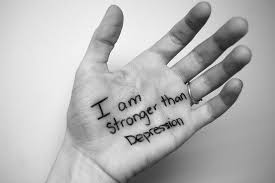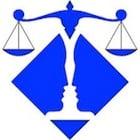Depression Testing and Assessment by Psychologists In London and Throughout the UK
As experts in the assessment of depression we note depression often occurs with anxiety, but both conditions can occur alone. The symptoms of depression affect people differently. The most common symptoms of depression are considered, and a depression test can be downloaded to help you determine if you are depressed.
Definitions of Depression
Low Mood
A low mood is referred to by some as a ‘heavy heart.’ Low mood can include:
- Sadness
- Feeling anxious or panicky
- Worry
- Tiredness
- Low self-esteem
- Frustration
- Anger
A low mood typically will tend to lift after a few days or weeks, if it does not lift it may be a sign of depression.
Depression Definition 1: World Health Organisation
“Depression is a common mental disorder, characterised by persistent sadness and a loss of interest in activities that you normally enjoy, accompanied by an inability to carry out daily activities, for at least two weeks.In addition, people with depression normally have several of the following: a loss of energy; a change in appetite; sleeping more or less; anxiety; reduced concentration; indecisiveness; restlessness; feelings of worthlessness, guilt, or hopelessness; and thoughts of self-harm or suicide.Depression is treatable, with talking therapies or antidepressant medication or a combination of these."

Mind’s definition of depression focuses on the amount of time the low mood lasts for.
Depression Definition 2: Mind
“Depression is a low mood that lasts for a long time and affects your everyday life.In its mildest form, depression can mean just being in low spirits. It doesn’t stop you leading your normal life but makes everything harder to do and seem less worthwhile. At its most severe, depression can be life-threatening because it can make you feel suicidal or simply give up the will to live.If the feelings are interfering with your life and don't go away after a couple of weeks, or if they come back over and over again for a few days at a time, it could be a sign that you're experiencing depression.”
Depressed people encounter intense and enduring symptoms of depression that take more than two weeks to resolve and often reoccur. There are both psychological and physiological symptoms of depression, which are considered below.
Ask About Our Online Remote Video Enabled Version of This Psychological Assessment. Find Out More Here About the Process Here
Depression Definition 3: Mental Health Foundation
“Depression is a common mental disorder that causes people to experience depressed mood, loss of interest or pleasure, feelings of guilt or low self-worth, disturbed sleep or appetite, low energy, and poor concentration.Depression is different from feeling down or sad. Unhappiness is something which everyone feels at one time or another, usually due to a particular cause. A person experiencing depression will experience intense emotions of anxiety, hopelessness, negativity and helplessness, and the feelings stay with them instead of going away.Depression can happen to anyone. Many successful and famous people who seem to have everything going for them battle with this problem. Depression also affects people of every age.Half of the people who have depression will only experience it once, but for the other half, it will happen again. The length of time that it takes to recover ranges from around six months to a year or more.”
Depression - Symptoms
The symptoms of depression vary between individuals. In some rare cases depression can cause: hallucinations, delusions, extreme weakness, or not being able to move parts of the body. Some people might refer to this as a ‘nervous breakdown.’ The most common psychological and physical symptoms of depression are listed below.
Psychological and Physical Symptoms of Depression include
- Tiredness and loss of energy.
- Sadness that does not go away.
- Feeling tearful.
- Loss of self-confidence and low self-esteem.
- Difficulty concentrating.
- Not being able to enjoy things that are usually pleasurable or interesting.
- Being not motivated or interested in things.
- Finding it difficult to make decisions.
- Feeling anxious all the time.
- Avoiding other people, sometimes even your close friends.
- Feelings of helplessness and hopelessness.
- Sleeping problems - difficulties in getting off to sleep or waking up much earlier than usual.
- Very strong feelings of guilt or worthlessness.
- Finding it hard to function at work/college/school.
- Loss of sex drive and/or sexual problems.
- Thinking about suicide and death.
- Thoughts of harming yourself.
- Low mood lasting two weeks or more.
- Comfort eating or losing your appetite.
- Gaining or losing weight.
- Physical movement that is either slowed down or sped up.
- Feeling irritable and intolerant of others.
- Physical aches and pains.
- Constipation.
- Unexplained aches and pains.
- Changes to your menstrual cycle.
The social symptoms of depression include
- Poor performance at work.
- Avoidance of contact with friends and participating in fewer social activities.
- Loss of interest in hobbies and interests.
- Difficulties with your family and home life.
Find out More About Depression
- Types of Depression and Depression Test
- Clincial Depression - NHS
- Clincial Depression - Symptoms - NHS
- Clinical Depression - Mental Health Foundation
- Depression - Mind Help for Mental Health
- Depression - Re-Think Mental Illness
- Depression - Symptoms, Causes and Treatment
- Depression - Blogs and Stories
- Depression
- Depression - Your Health in Mind
- Everything You Know About Depression is Wrong!
- Depression Feels Like a Derangement: Menopause, Depression and Me
- Is Depression Good for You?
- WHO - Depression
- Depression Quotes
Find A Psychologist Near Me

Advanced Assessments - Psychologists for Legal, Education and Employment
Open Now - 24 hour Service - Open Weekends
We work throughout the UK
UK: +44 208 200 0078 Emergencies: +44 7071 200 344
180 Piccadilly, London, W1J 9HF
Also at: Westhill House, Highgate Consulting Rooms, 9 Swain's Lane, London N6 6QS
Please do not attend our office if you do not have an appointment
Twitter: @ExpertWitness_
Facebook
We are a part of the Strategic Enterprise Group
